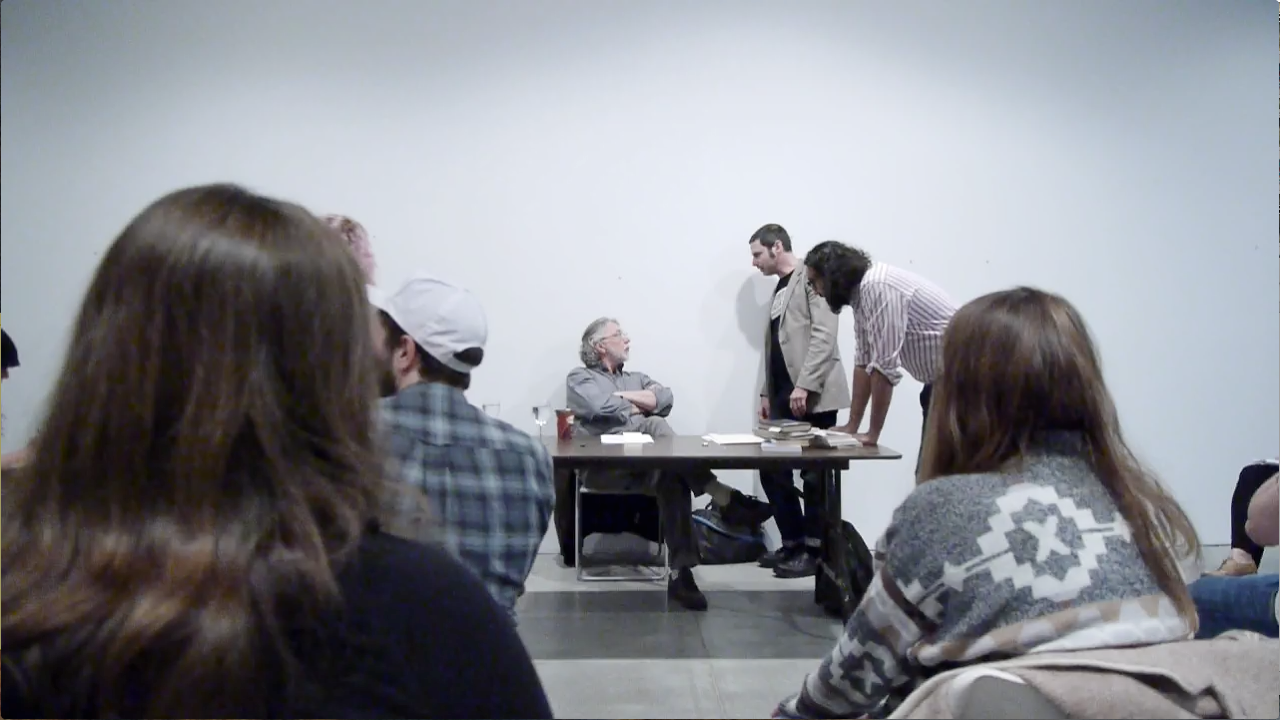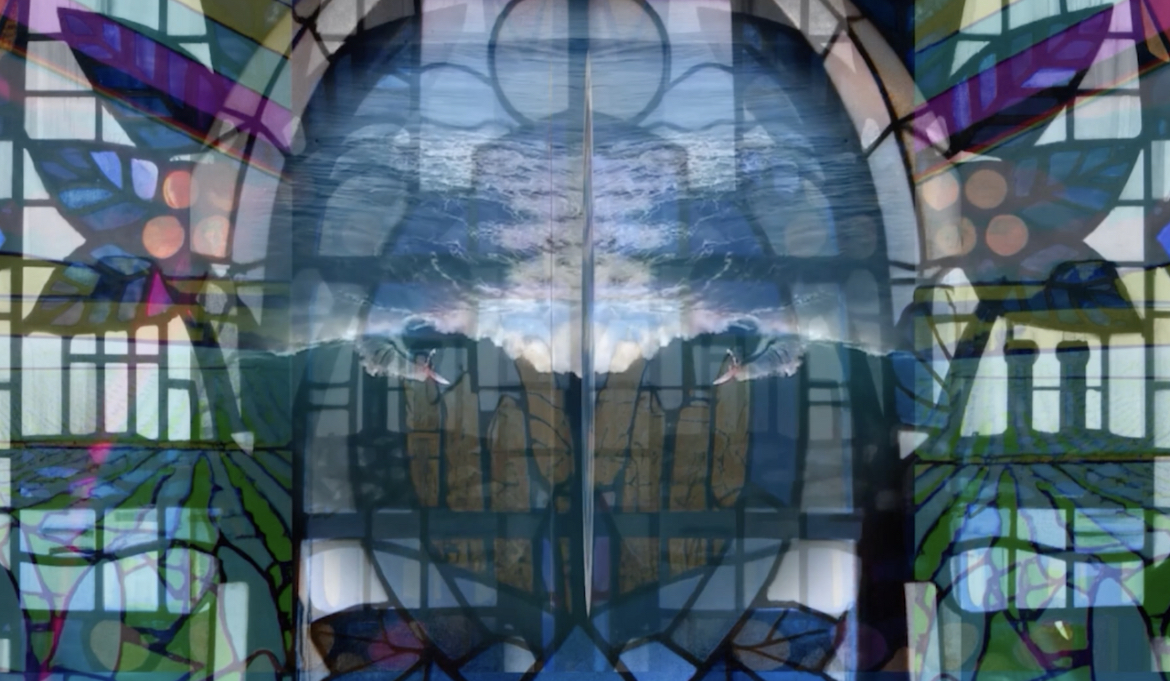Talks
VISR Lecture
21 October–
9 December 2013

Convened by: Jonathan Middleton
Vancouver Institute for Social Research
The Vancouver Institute for Social Research (VISR) is an independent, para-academic, theory-based free school which began in February 2013. Its intent is to move beyond the borders of the traditional university and to open up a more accessible platform in the city for the engaged discussion of critical theory.
The Institute’s second session will be held from October 21, 2013 until December 9, 2013.
Once a week on Monday evenings from 7-9 pm at the Or Gallery (555 Hamilton Street), we will be inviting professors to present on topics of their choice over this period. The seminar will be free to the public and all professors will be offering their services on a voluntary basis.
As we continue into our second session, we would like to take this opportunity to open up the conversation with prospective professors and students to create a sustained para-academic platform in the city.
Organized by the East Vancouver Young Hegelians – Chapter 13 (Night of the World Project – die Adlestatte faction)
The readings are posted on the VISR website: http://visrfreeschool.wordpress.com/
Past seminars on Youtube
Oct. 21st
Logics of Violence: An Introduction
Ian Angus
SFU Humanities
I will distinguish 5 forms of violence, including discussion of the reasons for this classification and its difference from that used by other thinkers: criminality, systemic violence, metaphysical (or religious violence), revolutionary violence and the violence brought out by social disintegration. This classification will be used to suggest that each form of violence has a particular logic, such that violent events are not merely random but contain constitutive presuppositions that call for specific responses that thus generate cycles of violence. It is these cycles, or “logics of violence,” that we need to understand. Particular analysis will be given to revolutionary violence and the violence brought out by social disintegration. In conclusion, there will be some reflection on whether violence is inherent to the human condition and thereby to the possibility of non-violence.
Oct 28, 2013
Judith Roof
Rice University (Houston, TX) English
The Dangers of Homeostasis: The Demise of the Nom-du-père
When Lacan meets Luhmann, the inevitable transcendentalism of posthumanism comes into focus. Shifting from a Freudian to a systems vocabulary offers a slightly different analysis of the stubborn resistance of structure as its binaries reemerge in renderings of the “digital,” repositionings of the paternal function, and reinscriptions of oppositional inequities. This seminar will focus on resonances from an “event” (in Badiou’s terms) or “cut” in Lacan’s in which the premise underlying metaphor (Law) disappeared, reappearing as both a silliness and paranoid knowledge. These registers operate in the same way as the hoax, patching Law with a differently-constituted mise-en-abyme.
Nov 4, 2013
Jon Beasley-Murray
UBC Spanish
The Mexican Exception? Biopolitics, Drugs, Insurgency
Over the past fifteen years or so, much attention has been paid to the cauldron of political experimentation that has constituted a veritable “Latin American laboratory” of social mobilization and democratic participation. From Venezuela to Bolivia, Argentina to Brazil, the old, repressive terms of the creole social contract have been challenged and renegotiated by a series of insurgencies (from the Caracazo to the Bolivian gas wars) and their respondent institutional forms (from chavismo to the MAS). Even Colombia, otherwise often the lone holdout when it comes to good news from the South, has seen novel forms of political participation and governance on the local and municipal scale, as well as moves towards a possible end to its long-running civil war.
The exception, seldom discussed in the same breath, is Mexico. Though the Mexicans have had their movements of social mobilization and radicalism, from the Zapatistas to López Obrador’s presidential campaign, any sober assessment has to admit that the country’s situation is dire and deteriorating. Violence associated with the drugs trade has led to the death of literally tens of thousands, at a rate faster and more devastating than any similar violence that the region experienced over the course of what was hardly a particularly pacific twentieth century. Despite the fact that this violence is in part a response to an increasingly assertive (and militarized) state presence at its periphery, in effect we see the state’s reach and the strength of its claims dramatically shrinking.
All this takes place in conditions of near silence and much ignorance, largely because of the breakdown of mechanisms of representation, as the press has been intimidated and essentially forced to take a blind eye to proceedings while international opinion has been largely indifferent. Yet because of the threat that the situation poses both the state and the institutions of what used to be known as civil society, it has all the hallmarks of a social insurgency, if without any promise of liberation or redemption. And international indifference is foolhardy given that Mexico is perhaps showing the way towards a new biopolitical terrain whose savagery, driven by the desire for profit (and death), is hitherto unknown in the annals of capitalism. And it may turn out to be not so exceptional after all…
This paper examines some of the practical and theoretical issues that the so-called Mexican exception raises.
Nov 11, 2013
Bo Earle
UBC English
Positive Terror: Hegel, Liberalism and Noir Aesthetics
The account that modern liberal capitalism, following Adam Smith, offers of its own history is one of emancipation, of the progressive disencumbering of atomic Cartesian subjects whose rational self-interest is fortuitously mitigated by the sympathetic imagination to the collective benefit of society at large. The otherwise inexplicable good fortune that individual liberty should be so conscientiously self-correcting Smith illustrates by citing the capacity of the bourgeois subject to imaginatively rehearse the suffering of a derelict lunatic he happens upon in the street. For Smith, self-interested rationality is corrected by its capacity to imagine its own negation. My talk introduces the alternative account of modern liberalism offered in G.W.F. Hegel’s Phenomenology of Spirit. Anticipating current influential reflections on the ethical implications of terror by figures such as Baudrillard, Sloterdijk and Zizek, Hegel does not dispute Smith’s reading of liberalism’s self-conception but offers a more expansive account of what is functionally entailed by the act of negation. The bourgeois subject stages its own negation as a spectacle that implicitly reaffirms its claim to an unencumbered, sovereign perspective. Empathy then can be seen less as mitigating possessive self-interest than fostering it, and modern liberal subjects less as mutually beneficent than mutually exclusive. Hegel deconstructs Smith’s conclusion simply by recognizing such violently antagonistic individualism for what it is, contending that terror, radically indiscriminate negation, both in the case of the French Revolution and in general, is not a contingent consequence but the essential purpose of democratic revolution and liberal progressivism generally.
A classic study of modern liberalism, Isaiah Berlin’s Two Concepts of Liberty, contrasts what he terms the “negative” freedom to be left alone, unencumbered and free to do whatever one happens to choose, and the “positive” freedom to pursue certain specific goods or purposes. As an ethical norm applied in the here and now, Berlin concludes that negative freedom is empty, denying real acts the kind of concrete aims they require but that only positive conceptions of freedom provide. Analogously, Hegel’s and Smith’s conceptions of liberal self-negation might be contrasted in terms of positive and negative conceptions of terror. Smith’s image of the lunatic, like negative conceptions of encumbrances to be removed, is merely one among many arbitrary examples of unfreedom that, in themselves indifferent, together confirm possession of an unencumbered perspective and of a potential for future action that escapes all such limits. Hegel treats terror not as an arbitrary object of knowledge but a singularly traumatic practical experience, symptomized aesthetically by metaphors that liken bloodletting to drinking water and beheading to cutting cabbages. Negation of Cartesian sovereignty is concretely felt effect of properly grasping such metaphors, not an edifyingly removed spectacle. Such sovereignty retains a crucial role in Hegel’s positive conception of terror; not the role of an ideologically presumed reality, but the role of a fantasy by which the real practice of modern violence is structured and haunted.
To flesh out a picture of what a liberal ethics would entail that acknowledged rather than suppressed its implication in terror, I will chart a brief history of noir aesthetics from Baudelaire’s alternative stagings of Smith’s street encounter to classical examples of film noir.
Nov 18, 2013
Geoffrey Winthrop-Young
UBC Central, Eastern, Northern European Studies
Avoid the Breath You Take: Peter Sloterdijk’s Terror from the Air
Virginia Woolf famously observed that ‘on or about December 1910 human character changed.’ The claim is both too modest and imprecise. Peter Sloterdijk — arguably the most stimulating, certainly the most controversial German philosopher — knows better. The epochal turn occurred close to the Belgian town of Ypres, on April 22, 1915, at around 5:00 PM, when the German army launched the first deadly gas attack. For Sloterdijk, this targeting of the body’s immediate environment rather than the body itself is not only a matter of military history, it dramatically highlights the key feature of the modern age: the ongoing practical and theoretical ‘explication’ of our enabling environments. Explication involves becoming aware of (and experiencing) supporting infrastructures that had long remained below the thresholds of perception. And you are never more aware of your necessity to breathe than when the very breath you take threatens to kill you. Ypres, Auschwitz, Dresden, Hiroshima and all their current successors are the ‘atmoterrorist’ equivalent of equally far-ranging scientific and artistic endeavours that characterize modernity. The structural opposite of gas warfare is the art of climate control and air conditioning. Both speak of a fundamental realignment in the ongoing intertwinedness between humans and their spaces; though to use gas war as example to discuss this development is, no doubt, a bit like explaining the principles of gravity by describing what happens to human bodies when they are thrown off a cliff.
The events of Ypres are featured in the beginning of Sloterdijk’s Terror from the Air (2009), first published as Luftbeben: An den Quellen des Terrors (literally, “Airquakes: At the Sources of Terror”) in 2002 and then again in 2004 as an introductory chapter of Schäume (“Foams”), the third volume of Sloterdijk’s trilogy Spheres. Much as the gas attack launched the Second Battle of Ypres, Terror from the Air introduces a much broader argument that brings to a close Sloterdijk’s ambitious anthropotechnical spherology. A lot can and must be said about the conceptualization of terror and terrorism in Terror from the Air (a titillating title designed to disappoint readers expecting insights into 9/11), but a lot must also be said about the philosophical, historical and biographical undergrowth of Sloterdijk’s ideas. The presentation will touch on both book and backgrounds.
Reading: Peter Sloterdijk, Terror from the Air
November 25th, 2013
Laura U Marks
SFU School for the Contemporary Arts
Aromatic Events: how plant communication makes us more than human
Plants communicate to other plants, to insects, and to animals, in many fascinating ways. We humans can cultivate our latent plant nature by trying to understand what the plants are doing. Our acts of fear and self-protection resemble those of plants and rely on plant resources; and many of the reasons we experience beauty and pleasure arise from the way plants evolved to attract pollinators. The philosophers C.S. Peirce, A.N. Whitehead, and Elizabeth Grosz will support my inquiry, as well as recent findings from plant biochemistry. To help us cultivate our plantlike qualities I will distribute olfactory items.
Dec 2, 2013
Gareth James
UBC Art History and Visual Art Department
Description to follow
Dec 9, 2013
Sneja Gunew
UBC English and Gender Studies
Fighting Globalization with a Cosmopolitanism Yet to Come.
Sneja Gunew, University of British Columbia
Whether through global warming, economic turbulence, or acute awareness of conflict zones on the daily news, the world is currently experiencing its acute inter-connection in many aspects. But what are the conceptual terms that can help us understand this everyday reality? While we have become all too familiar with the increasing social inequalities that appear to be inherent to globalization, recent debates in cosmopolitanism offer an approach that, in the words of sociologist Gerard Delanty, creates “a condition of openness to the world … entailing self and societal transformation.” The literary critic Berthold Schoene suggests that “to call oneself a cosmopolitan involves … opening oneself up to a radical unlearning of all definitive modes of identification.” While traditional cosmopolitanism is associated with alienated mobile elites and their consumption habits the new debates over the last decade attempt to create a sense of global interconnection that perceives all cultures, groups and individuals as contributing to world knowledge. The cosmopolitan debates help generate a cultural legibility that links individuals across group identities and beyond national ties to embrace diasporic connections. For example, the term ‘vernacular cosmopolitanism’ (coined by postcolonial critic Homi Bhabha) acknowledges the global interdependence identified by the new debates in cosmopolitanism at the same time that it recognizes that these are always rooted in and permeated by local concerns attached to minority groups competing within the nation—a complex politics that includes Indigeneity. What might this new legibility comprise and to what degree does reading world literatures (and cultural texts) in new ways help us comprehend this new cosmopolitan grammar?
Contact – visrvancouver@gmail.com
Venue is wheelchair accessible.




